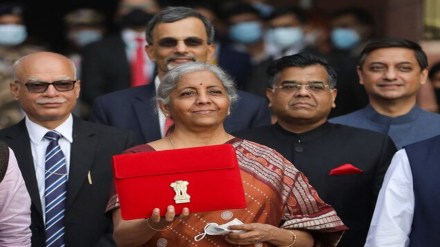Fintech companies catering to MSMEs in the country have called for measures in the upcoming budget by Finance Minister Nirmala Sitharaman to further enable access to affordable credit for emerging enterprises. While a string of policy announcements in the past few years, particularly post-Covid has been able to cater to short and medium-term credit needs of MSMEs, bridging the enormous credit gap in the MSME sector is still quite an extensive work.
Among the biggest announcements in the recent past for MSMEs was the introduction of a new clause last year under Section 43B of the Income Tax Act focusing on the delayed payments issue faced by enterprises.
The clause allows expenses to buyers on invoices from MSEs only if paid within 45 days in the year of actual payment instead of the year when it was incurred as an expense.
However, currently, 40,296 applications involving Rs 12,962 crore stuck in unpaid dues to micro and small enterprises are under consideration by various facilitation councils in the country, as per the government’s delayed payment monitoring portal Samadhaan. Since the launch of the portal in October 2017, 2.18 applications have been filed involving Rs 48,203 crore.
“Despite the introduction of incentivized payments, the issue of delayed payment persists, underscoring the need for a robust framework to address it effectively. Such a framework would ensure timely payments, eliminate working capital constraints, and significantly improve the operational efficiency of MSMEs,” said Gaurav Maulikhi, SVP – Business Transformation and Sales Strategy at B2B e-commerce company Solv focusing on MSME financing.
Furthermore, affordable and timely access to financing remains a priority, given the sector’s overall finance demand of around $1,955 billion. Maulikhi said initiatives like the Emergency Credit Line Guarantee Scheme (ECLGS) and Partial Credit Guarantee Scheme (PCGS), along with simplified credit disbursal, can provide financial support to MSMEs, especially in tier 2 and tier 3 regions.
Out of the estimated MSME credit demand of around $1,955 billion in the country, the demand for debt-based finance is pegged at $1,544 billion with half coming from those that prefer financing from informal sources or from financially unviable enterprises, according to the Reserve Bank of India’s Deputy Governor Debabrata Patra.
This leaves a debt demand of $819 billion, of which $289 billion demand is fulfilled by formal credit lenders like banks. The remaining unfulfilled demand of $530 billion makes up a huge addressable market for banks, fintech and non-banking financial companies (NBFCs).
To cater to this demand, Ritesh Jain, Co-founder of MSME-focused digital lending platform opined that the government could simplify eligibility criteria for NBFCs under schemes like the Credit Guarantee Fund Trust for Micro and Small Enterprises (CGTMSE).
Moreover, “By increasing the guaranteed coverage under CGTMSE, lenders would be more willing to provide unsecured loans, reducing the risk on their end and empowering MSMEs to access credit without hurdles,” said Jain.
Currently, the maximum extent of CGTMSE guarantee is 75 per cent for MSEs for loans up to Rs 5 crore, 90 per cent for women entrepreneurs and 85 per cent for SC-ST entrepreneurs.
Jain also called for reducing NBFCs’ borrowing costs from currently 11-13 per cent to make credit more affordable for small businesses, as NBFCs can pass on the savings to their customers.
“Initiatives such as easier access to low-cost bank funding and specific advantages for lending in rural and semi-urban territories for NBFCs will enable us to serve small businesses (with tickets up to Rs 10 lakh) more effectively. This, in turn, will contribute to achieving the larger goal of financial inclusion at a national level. Moreover, Including sub-Rs 20 lakh secured loans under SARFAESI eligibility would help NBFCs resolve delinquent cases more efficiently,” said Jitendra Tanwar Managing Director & CEO of Namdev Finvest.
Fintechs further urged for incentives and subsidies to push payment and lending solutions, create new markets, and remove trade barriers in the forthcoming budget.
“This will enable MSMEs to expand globally while contributing to making India economically self-reliant and inclusive,” said Kunal Jhunjhunwala, Founder of online payment gateway solution provider Airpay.
With inflation projected to reach 5.7 per cent in Q3 FY 2024-25, Jhunjhunwala said operational costs remain a concern for MSMEs along with regulatory intricacies.
“Challenges like these are expected to be addressed by the budgetary steps taken to strengthen the MSME ecosystem and speed up the targets of Make in India and financial inclusion for growth in this significant sector.”
